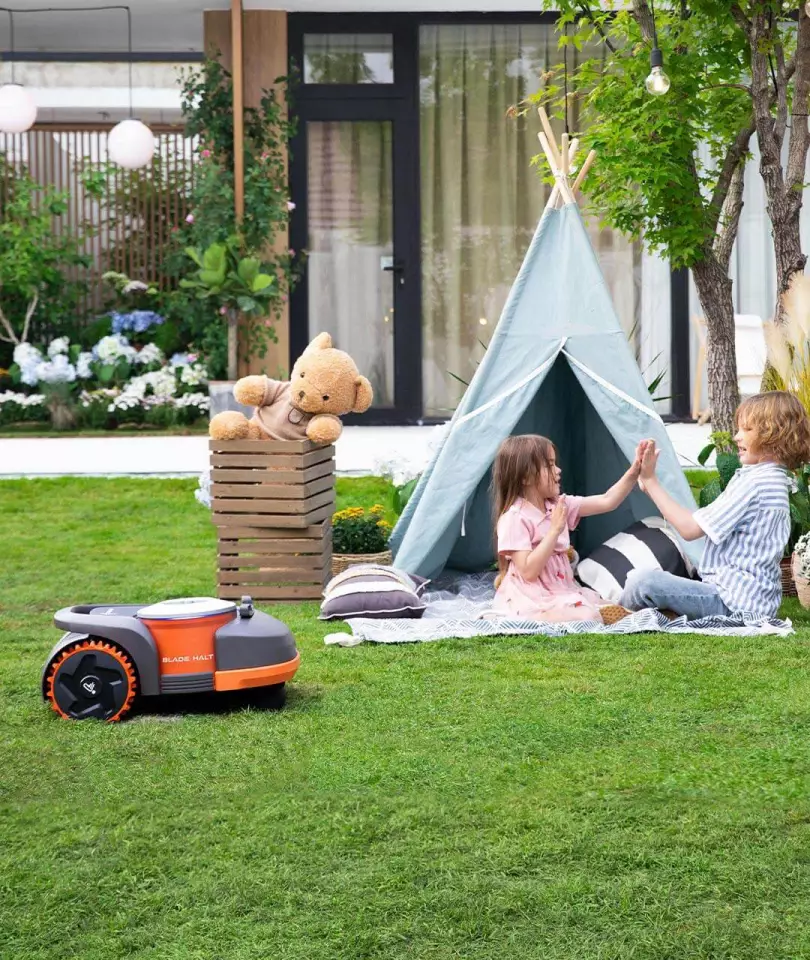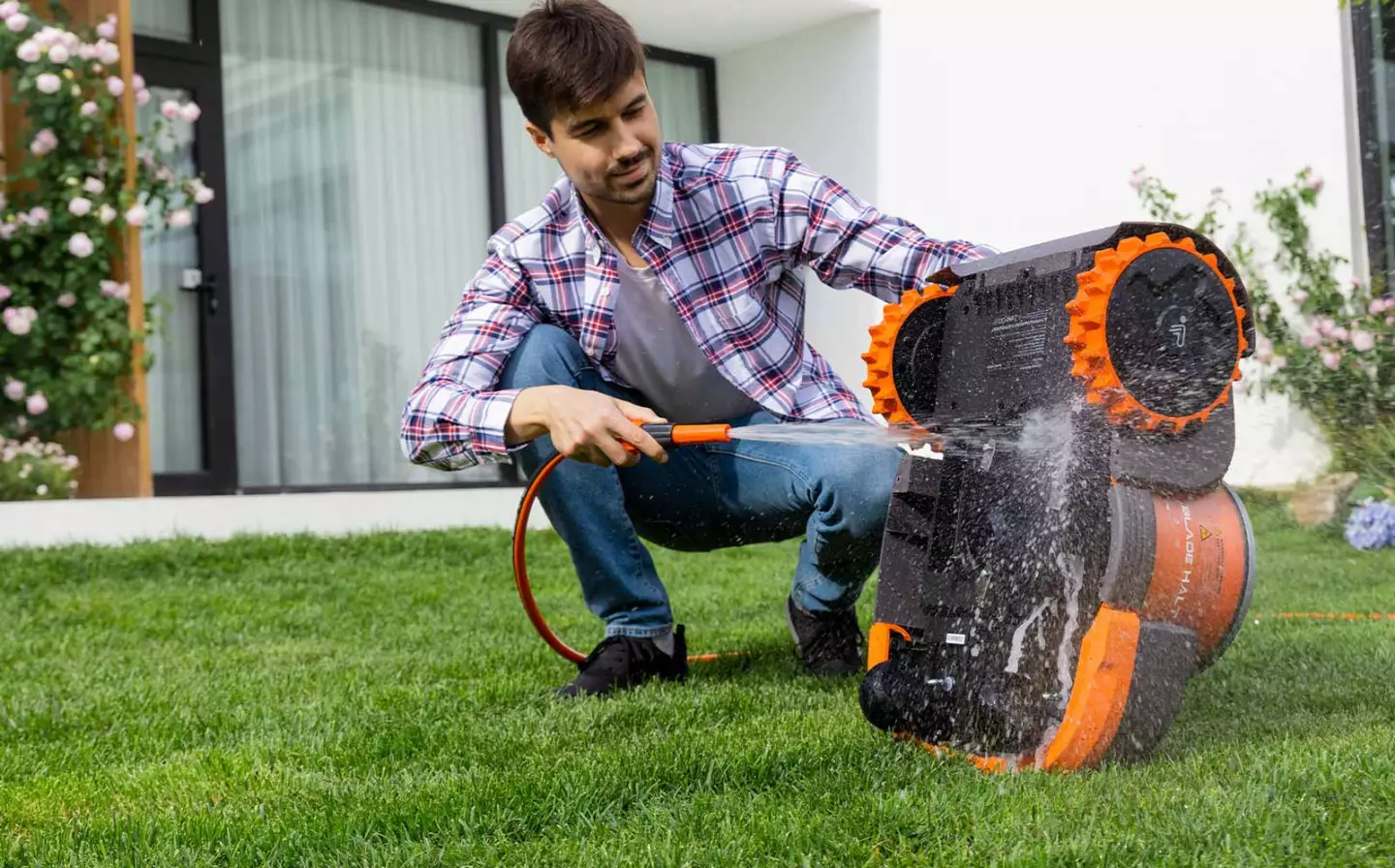Segway-Ninebot has rolled on into the autonomous lawn mower space with a robotic gardening solution that goes a little further than most, using GPS to navigate gardens with a high degree of precision. Low noise levels and easy cleaning are other noteworthy features of the newly introduced Navimow, which will arrive in a number of variants to suit lawns of different sizes.
Robotic lawn mowers are nothing new, with a number of takes on the technology gracing our pages over the past 18 years. Most of the solutions on the market today require installation of a perimeter wire, which acts as a virtual fence to keep the robot from straying into garden beds or other troublesome terrain. Some relative newcomers, however, like the Terra from iRobot, use standalone beacons and onboard mapping systems to stay within the desired areas.
The Navimow joins the wire-free clique of autonomous lawn mowers by relying on a GPS-based solution the company calls the Extra Fusion Locating System. Owners use the companion smartphone app to draw up the virtual boundary for their robotic gardener, and the Navimow uses onboard sensors to move around the lawn with a positioning accuracy of 2 cm (0.8 in), with the user receiving a smartphone alert if the virtual perimeter is breached.

The mower is also fitted with five safety sensors that enable it to detect and navigate obstacles, and a hub motor that powers it up inclines of 45 percent. The top-of-the-line model packs a 10.4-Ah battery that enables the mower to cover 3,000 sq m (32,300 sq ft) of lawn on each charge, though if it's running low on the job or detects rain, it will return to its charging station and then pick up where it left off at a later date.
The Navimow also operates at 54 dB, a little over half the noise levels of a typical mower, and features offset blades to reach the very edges and adjustable cutting heights to keep lawns to the desired length. Conveniently, it is also IPX6 waterproof rated, so it can simply be rinsed off when need be.

Segway is launching four versions of the Navimow, with the top-shelf, 10.4-Ah H3000E carrying a price tag of €2,500 (US$3,000). The entry-level H500E packs a 5.2-Ah battery and is suited for lawns spanning 500 sq m (5,381 sq ft) at a price of €1,199 (US$1,400), with those in between priced at €1,499 and €2,000 (US$1,800 and $2,400). The company is yet to reveal US shipping dates, but you can check out the full launch presentation below.
Source: Segway







